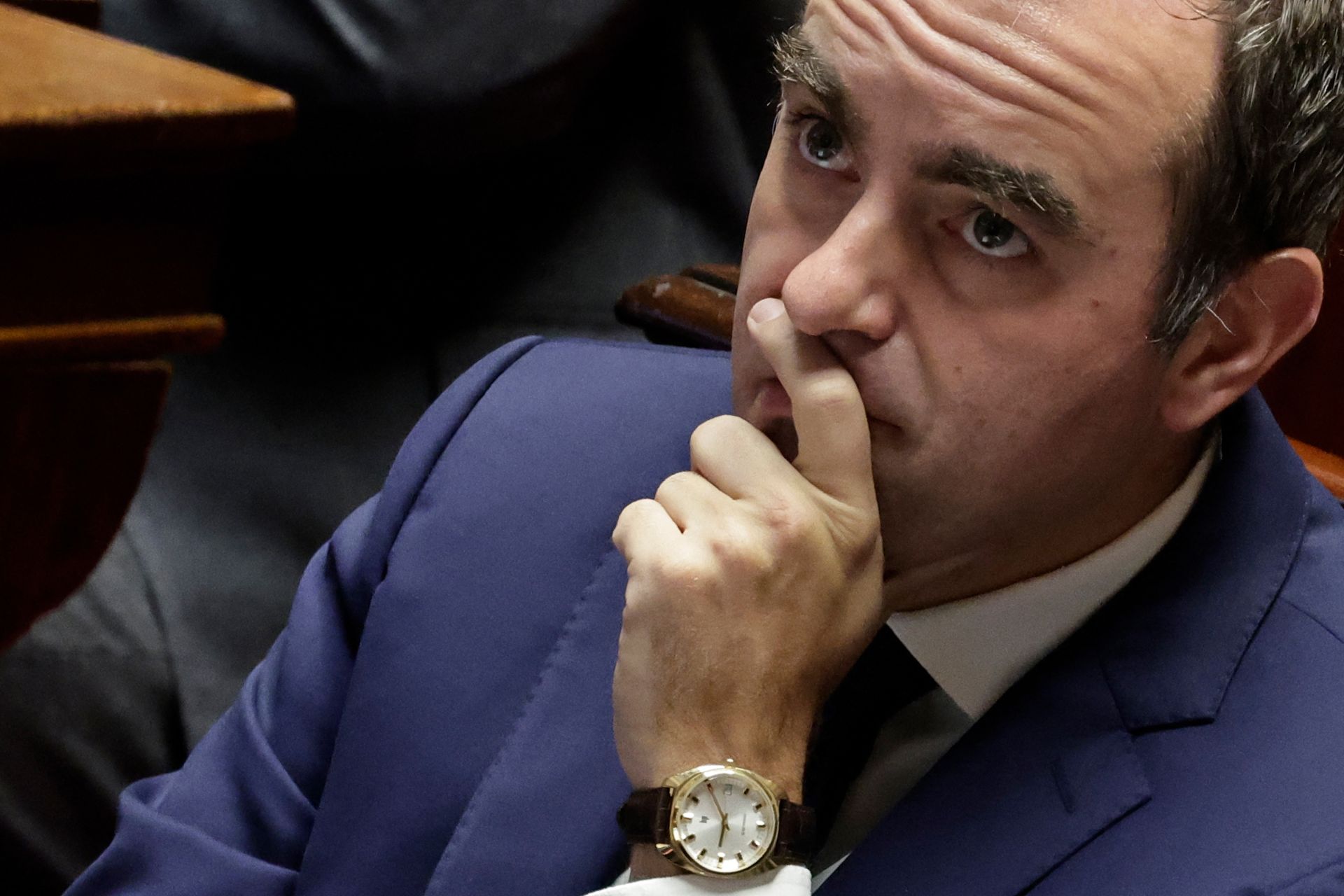- Home
- Middle East
- French PM Survives Two Confidence Votes Days After Reappointment

French Prime Minister Sebastien Lecornu narrowly survived two no-confidence votes in parliament after agreeing to suspend the contentious pension reform that raised the retirement age. The move, seen as a last-ditch effort to preserve his government and advance a crucial austerity budget, underscores France’s deep political divisions amid mounting pressure over debt and deficit cuts. ©AFP
French Prime Minister Sebastien Lecornu survived two confidence motions Thursday, just days after appointing his new government and making a key political concession to stay in power.
The votes followed Lecornu's decision Tuesday to back suspending a divisive 2023 pension reform, in a bid to keep his cabinet afloat long enough to pass a much-needed austerity budget by year's end.
The leftist Socialist (PS) party had threatened to vote to oust the premier if he didn't move to freeze the reform that would raise the retirement age from 62 to 64.
Without PS support, two separate motions brought on Thursday by the hard-left France Unbowed and far-right National Rally fell short of the votes needed to topple Lecornu.
After the results, Lecornu said he was ready to "get down to work" on budget negotiations, due to start in parliament next week.
"You can see how serious the situation is.... The debates had to start," the head of government told BFMTV.
But Socialist leader Olivier Faure warned that his party could still back a move to topple the government.
"If the government does not honor its commitments, particularly regarding the suspension of the pension reform, we would immediately vote against the cabinet," Faure said on X.
France, the eurozone's second-largest economy, has been mired in political paralysis since President Emmanuel Macron called snap elections last year aiming to consolidate his power.
The vote instead resulted in a hung parliament and gains for the far right.
'Terror of elections'
Lecornu, the president's seventh premier since 2017, must now steer a cost-cutting budget through a deeply divided parliament before the end of the year, in what is expected to be a bruising fight.
Lecornu, who became prime minister last month, resigned last Monday after criticism of his first cabinet, only to be reappointed days later and unveil a reshuffled team in time to submit a draft budget to parliament.
Under pressure from the European Union to rein in its deficit and debt, France faces an uphill battle over cost-cutting measures that felled Lecornu's two predecessors.
France's debt-to-GDP ratio is the European Union's third-highest after Greece and Italy, and is close to twice the bloc's 60-percent ceiling.
Lecornu has pledged not to invoke a constitutional tool used to push through every budget without a vote since 2022 and vowed to put all bills to debate.
"The government will make suggestions, we will debate, and you will vote," the 39-year-old Macron loyalist emphasized in a speech to lawmakers Tuesday.
But the opposition has challenged his optimism.
The National Rally's Marine Le Pen accused lawmakers of granting Lecornu a reprieve out of "terror of elections", saying she was waiting with "growing impatience" for parliament's dissolution.
The far right sees its best chance yet to take power in the 2027 presidential race, when Macron's second and final term ends.
By Lucie Aubourg and Erin Flanagan/AFP
Read more



Comments